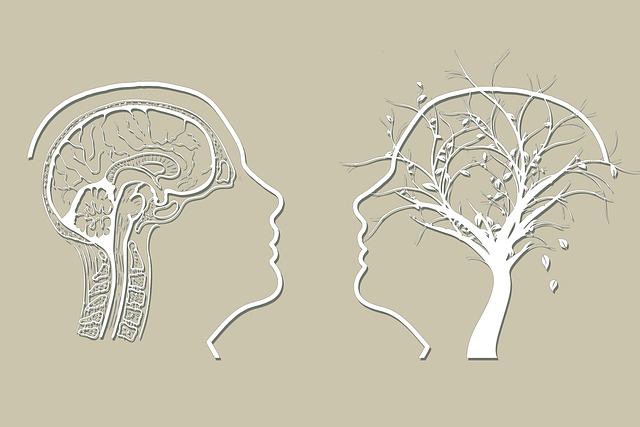Crisis intervention strategies are a core component of Lafayette Bipolar Disorder Therapy, focusing on short-term, structured processes to stabilize emotions, ensure safety, and promote positive outcomes immediately. Professionals emphasize observing behavioral changes, identifying triggers, and early recognition of symptoms like suicidal ideation or manic episodes. Key interventions include empathy-building, creating safe spaces, cultural competency training, calming techniques, and encouraging inner strength development through activities such as exercise and creative outlets. Beyond acute crisis care, Lafayette Bipolar Disorder Therapy employs holistic approaches, tailored therapy sessions, community outreach programs, and public awareness campaigns to empower individuals with long-term strategies for managing their mental health effectively.
In times of crisis, effective intervention can make all the difference. This comprehensive guide explores strategies for supporting individuals with bipolar disorder in Lafayette, focusing on early recognition and tailored care. We delve into understanding the complexities of a crisis, identifying triggers, and providing immediate assistance to stabilize moods and mitigate harm. Furthermore, we discuss long-term prevention through nurturing resilience, offering valuable insights into Lafayette Bipolar Disorder Therapy.
- Understanding Crisis Intervention: A Foundation for Effective Support
- Identifying Signs and Triggers: Recognizing the Red Flags of Bipolar Disorder
- Strategies for Immediate Assistance: Tools to Stabilize and Calm During a Crisis
- Long-Term Care and Prevention: Nurturing Resilience in Lafayette Bipolar Disorder Therapy
Understanding Crisis Intervention: A Foundation for Effective Support

In the context of Lafayette Bipolar Disorder Therapy and broader mental health support, crisis intervention strategies serve as a crucial foundation for effective assistance during moments of intense distress or turmoil. Crisis intervention is a structured, short-term process designed to help individuals cope with an impending or current crisis, providing immediate and targeted support to stabilize their emotional state and prevent further deterioration. It involves a set of skills and techniques aimed at de-escalating situations, ensuring safety, and promoting positive outcomes.
Understanding the dynamics of crisis intervention is essential for professionals in Mental Wellness Coaching Programs Development who aim to enhance Self-Esteem Improvement. By recognizing the unique needs and challenges that individuals face during crises, coaches and therapists can develop tailored interventions that address specific issues such as suicidal ideation, severe anxiety, or intense manic episodes. Crisis Intervention Guidance emphasizes proactive preparation, effective communication, and a deep understanding of the individual’s history to ensure timely and appropriate support, ultimately fostering resilience and promoting long-term mental wellness.
Identifying Signs and Triggers: Recognizing the Red Flags of Bipolar Disorder

Identifying signs and triggers is a crucial step in crisis intervention for Bipolar Disorder. This mental health condition, characterized by extreme mood swings, often presents subtle red flags that can be easily overlooked. Professionals in Lafayette Bipolar Disorder Therapy emphasize observing changes in behavior, energy levels, and sleep patterns as potential indicators. Rapid shifts from euphoria to depression, excessive risk-taking during manic episodes, or prolonged periods of low mood and fatigue are all significant triggers to watch for. Early recognition is vital; it enables timely intervention and prevents the severity of symptoms from escalating.
Effective crisis management requires a comprehensive understanding of these red flags. Mental health professionals should be adept at assessing and documenting behavioral shifts, incorporating self-care routine development as part of risk management planning. Practices such as compassion cultivation can also aid in de-escalating acute episodes. By fostering empathy and self-compassion, individuals with Bipolar Disorder can learn to navigate their emotional landscape more effectively, leading to improved outcomes and a higher quality of life.
Strategies for Immediate Assistance: Tools to Stabilize and Calm During a Crisis

In moments of crisis, immediate assistance is paramount to stabilizing individuals and mitigating potential harm. For those grappling with bipolar disorder or similar mental health challenges, a swift yet thoughtful response can make a significant difference in their journey towards recovery. Strategies for offering immediate assistance include fostering empathy building strategies that demonstrate understanding and acceptance. Creating a safe, non-judgmental space encourages individuals to express their feelings openly, fostering trust and facilitating effective communication. Healthcare providers play a crucial role in this process by undergoing cultural competency training, enabling them to respond sensitively to diverse cultural backgrounds and experiences.
Additionally, simple yet powerful tools like deep breathing exercises, grounding techniques, or guided imagery can help calm the mind and body. These strategies promote self-regulation, empowering individuals to manage intense emotions during a crisis. Encouraging engagement in activities that foster inner strength development, such as regular exercise, creative outlets, or connecting with supportive networks, is also vital. Such proactive measures not only support immediate stabilization but contribute to long-term resilience, making it easier for individuals to navigate future challenges effectively, including those seeking Lafayette Bipolar Disorder Therapy.
Long-Term Care and Prevention: Nurturing Resilience in Lafayette Bipolar Disorder Therapy

In the context of Lafayette Bipolar Disorder Therapy, long-term care and prevention strategies play a pivotal role in fostering resilience among individuals grappling with this mental health challenge. Beyond acute crisis intervention, a holistic approach that incorporates ongoing support is essential for managing bipolar disorder effectively. This involves tailored therapy sessions focusing on emotional healing processes, where patients learn coping mechanisms to regulate moods and mitigate triggers. By nurturing psychological agility, individuals can develop the tools needed to navigate life’s ups and downs with enhanced resilience.
Community outreach program implementation and public awareness campaigns development are additional components that contribute to a robust prevention framework. Educating the public about bipolar disorder symptoms and available support services breaks down stigma, encourages early intervention, and promotes an environment where those affected can access necessary resources. These initiatives complement individual therapy by fostering community understanding and solidarity, ultimately enhancing the effectiveness of Lafayette Bipolar Disorder Therapy efforts over the long term.
Crisis intervention is a critical component of supporting individuals with bipolar disorder. By understanding the foundational principles, recognizing red flags, and employing immediate assistance strategies, we can stabilize and calm those in crisis. Moreover, long-term care and prevention through nurturing resilience in Lafayette Bipolar Disorder Therapy are essential for fostering adaptability and enhancing overall well-being. With the right guidance, we can help individuals navigate their bipolar journey more effectively.










